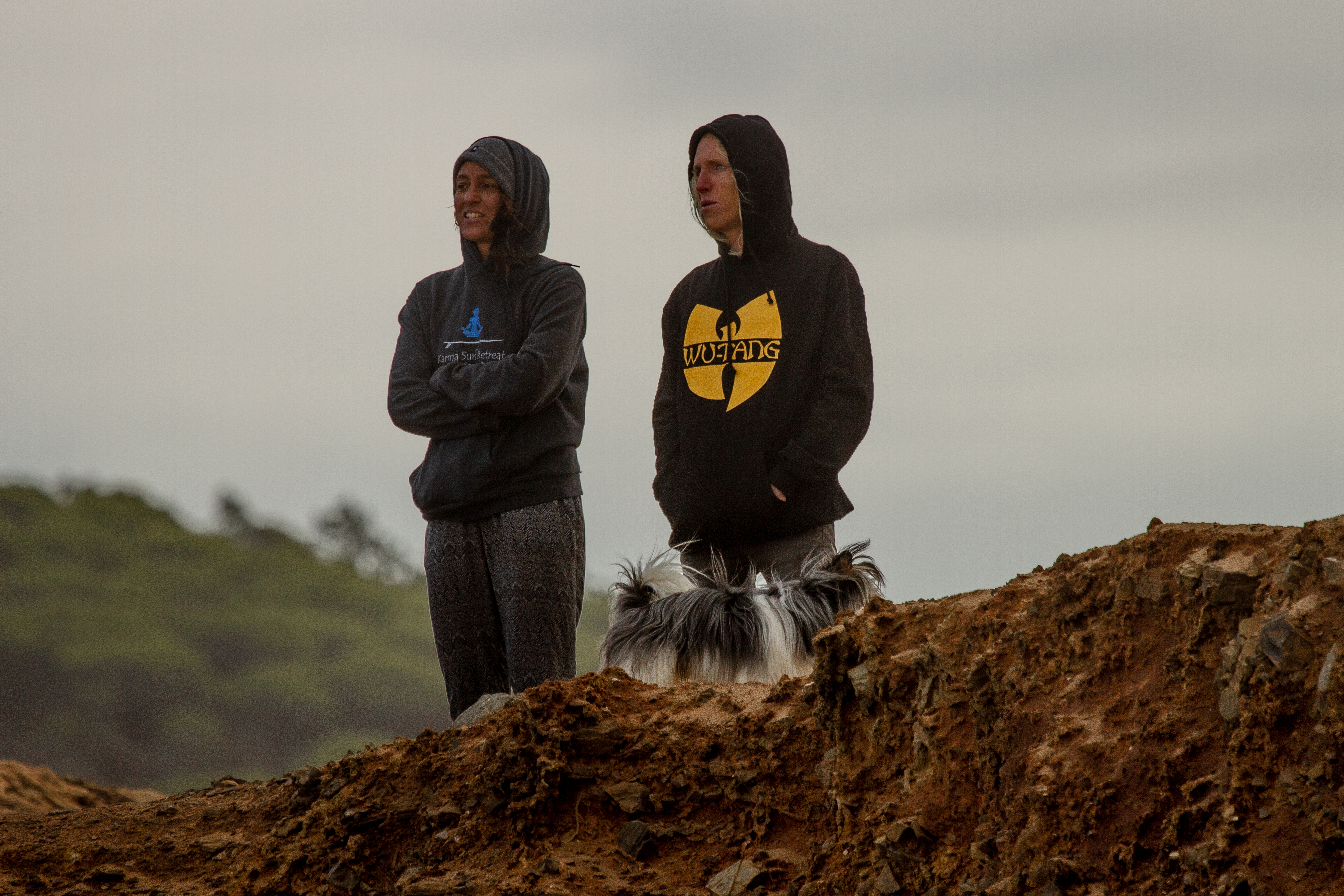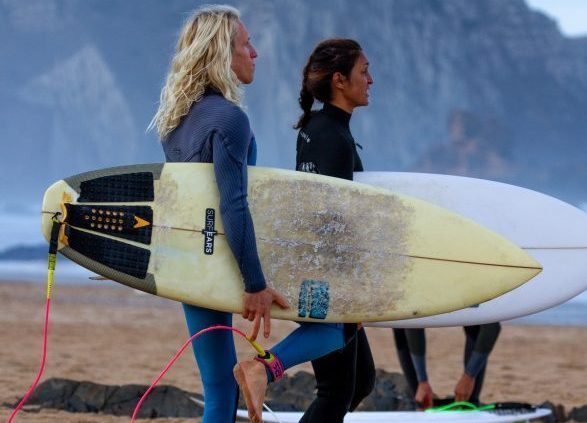“Can you run 10 workshops for us by the end of the year on the topic of trust?” a technology group asked me last August. On the one hand, for an independent trainer like me, jobs as large as these are similar to winning the jackpot. On the other hand, fall is a very busy time for me since many companies still have to use up their training budget by the end of the year. My schedule for 2019 was also more than full already.
The only way I could have taken on this job was to shorten my surfing vacation in the fall considerably. The topic seemed interesting to me though. The technology group had just taken over a large competitor. It was clear that dozens of employees would be made redundant. Running workshops on the subject of trust in this context – wow! To be honest, I thought that was a little crazy. But at the same time it sounded similarly tempting as head-high waves with slight offshore winds. So I first of all looked into the topic of “trust.”
My first association with it was Kaa’s song from the Disney classic “Jungle Book” – “Trust in Me.” Kind of funny. For many years, whenever my customers had difficulties with the name Keromosemito I told them to call me Ms. Kaa. But for some time now, I’ve been asking everyone to just use my first name. What’s the point in being so formal?
Business books – cleverly written, crisp central ideas
But I digress. Trust. I bought the book “The Speed of Trust” by Stephen M.R. Covey, which had impressed the managing director of the technology group so much and had been the reason for the enquiry. It’s one of those American business books: cleverly written, full of the author’s personal experiences. CEO of Company X says this, CFO of Company Y thinks that. The central idea of these books can usually be summarized in one sentence. In this case it was conveniently already evident from the title: Trust makes everything happen more quickly and more efficiently. To build trust, the author recommends following 13 rules such as being honest and open. Show respect and appreciation. Be loyal to your employees, etc. I can absolutely relate to what Covey writes. But as a basis for a workshop, which is supposed to make a difference, it seems a bit vague to me.
Do you really have to tell adults what rules they have to follow? Do you really need someone to monitor whether rules are complied with? Evidently, a lot of smart people believe that you do. For some time now, companies have been putting a lot of energy into building a compliance culture. For this purpose, people are hired to ensure that employees and suppliers comply with rules. In one of my seminars in Austria, a compliance officer recently introduced himself and his area of responsibility. Another participant promptly summarized his duties as follows – “So basically, your job is to make sure that we all behave ourselves.” I love the participant’s typical Tyrolese directness. One of the financial institutions I work for also employs over 80 (!) compliance officers. Nevertheless, it is hit by scandal after scandal. The trust in this financial institution is completely gone, despite all the compliance efforts.
There are enough rules and we actually know them all. But it doesn’t help.
Rather than employ compliance officers, why don’t we look at why employees and managers don’t follow the rules instead? Honesty, for example, is one of the most important values for many cultures and seems to be somehow important for human interaction. “Once a liar, always a liar,” is what we were already taught as children. And yet we repeatedly find ourselves not telling the truth. We’re keeping a low profile. We’re evasive. We hope that no one will ask any questions. Sometimes we lie. At work we justify this, for example, by saying that we don’t want to cause any unnecessary trouble, since the information is not official yet.
When my older son started school, I enrolled him in recorder lessons at his request. These took place on Wednesdays after the regular lessons in his elementary school. On the first Wednesday, however, he already came home after the sixth period. I asked him why he hadn’t gone to his recorder lesson and he replied that the teacher was ill. This went on for several weeks. After four weeks I asked him what kind of illness the teacher had and when the lessons would start. He then started crying bitterly and the truth spilled out of him while he was sobbing. On the first day he had not found the room in which the lessons were taking place, and now he was afraid to join the class. I hugged my son as he continued to cry. He asked me – “Mom, why does lying hurt so much?”
Our mind knows what is right. Our brain finds numerous reasons against it.
In his book “The Kelee” Ron W. Rathbun differentiates between the brain function and the mind function. We store information, knowledge, and rules in our brain. We use it to think and believe. We explain why we behave in a certain way and we justify our actions. Our mind is the part within us that intuitively knows what is right or wrong. According to Rathbun nothing truthful ever needs to be defended. He distinguishes between knowledge, which we store in our head or brain and between knowing, which is in our mind. Our mind is located in the middle of our chest, where we feel pain when we lie. The spot that constricts when we’re afraid. At the age of six, my son knew that it was wrong to lie. He didn’t need to be told. He could feel it clearly – and did it anyway.
Intelligence without wisdom
The driving force for not telling the truth is usually fear (in the economic sector, greed is an additional factor). Fear of hurting others. Fear of the consequences of what we say, etc. We often do stupid things in a state of fear. We behave in a way that in retrospect seems really silly. As the saying goes – “The truth will out.” Or, to once again quote Ron W. Rathbun – “Intelligence without wisdom is often a step before stupidity.”
I firmly believe that if you want to create an environment in which trust prevails, you can only succeed if each individual consistently works on dealing with their own fears. Ideally, managers should set a good example. Especially in times when jobs are cut, I consider this to be of central importance.
Connecting brain and heart
Based on this idea, I developed a concept for the technology group. A one-day workshop is not enough in this case. Instead, a practice should be established in which brain and heart are connected, in which everyone consistently reflects on their actions and asks themselves:
- Is what I’m doing here right?
- Does it feel good?
- Or do I feel that I have to justify what I’m doing?
- Do I really have a clear conscience?
If you answer these questions with “no,” the simple recommendation is – then do it differently. When you do some soul-searching and if you are of sound mind, you will know what is right. If you don’t have the courage to behave differently, it’s worth asking yourself – “What am I worried about – what is stopping me?” The next step is to then deal with this concern. It’s worth it. Everyone starts with themselves and puts this into practice. Daily! There’s no other way. This can save the need for many controls and controllers in companies. At an individual level it has the great advantage that our own life seems more meaningful as a result. And that feels really good.
Always a good feeling in the end
The technology group decided to use a different trainer, by the way. My concept, or I as a person, was too disruptive for the customer. A few years ago this would have hurt me a lot. I would have worried that I wasn’t good enough. I have been dealing intensively with this feeling for years and I practice detaching from it. In this case, it expressed itself in anger at the fact that I had spent a weekend working out a concept for nothing. But this blew over very quickly. I trust that the customer, whom I hold in high esteem, has found a competent trainer who supports him in the right and coherent way.
As always, it was the best decision for me. Instead of running workshops in Germany, I was able to enjoy my surfing vacation in my beloved Algarve and work on my cutback. I am still light years away from being able to surf it. But believe it or not, I got barreled! Does it feel good? Yes!!! Trust in me and call me K.
photos by: Tristan Page @portugalsurfshots
surfer in the barrel: Surfguide Algarve’s Niels Labrujière



